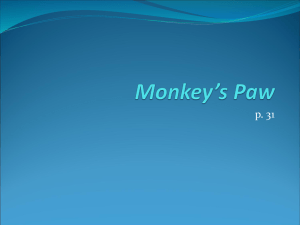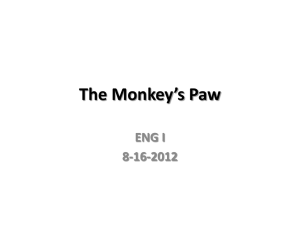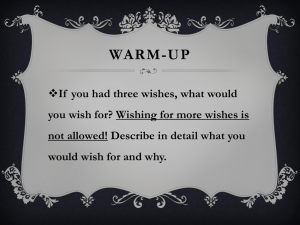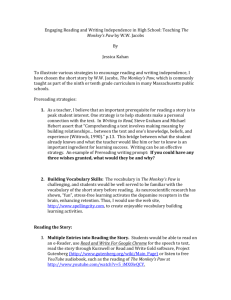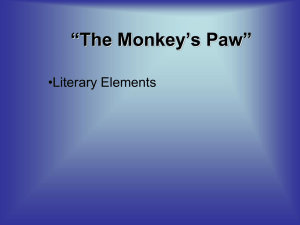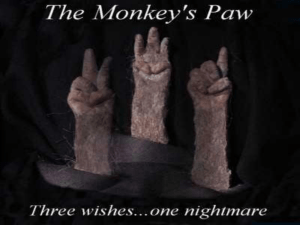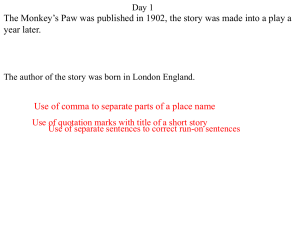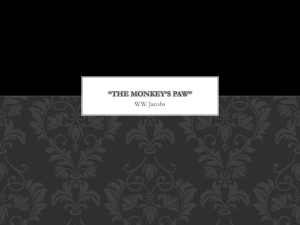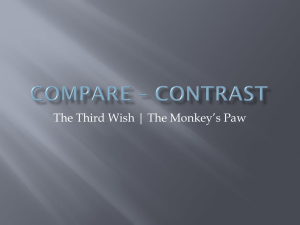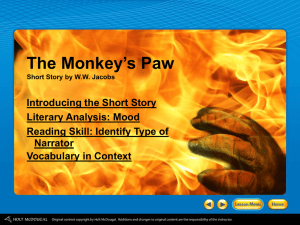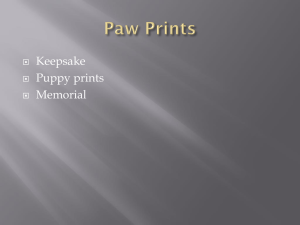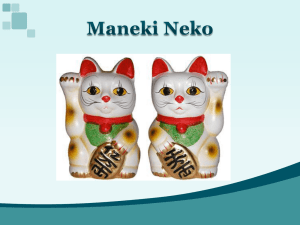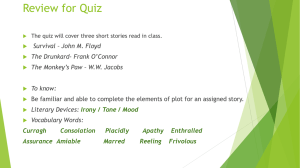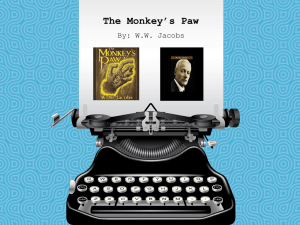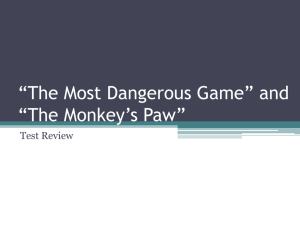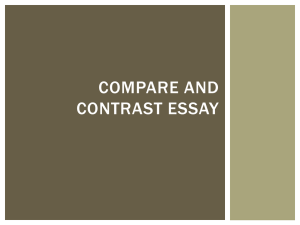The Monkey`s Paw
advertisement
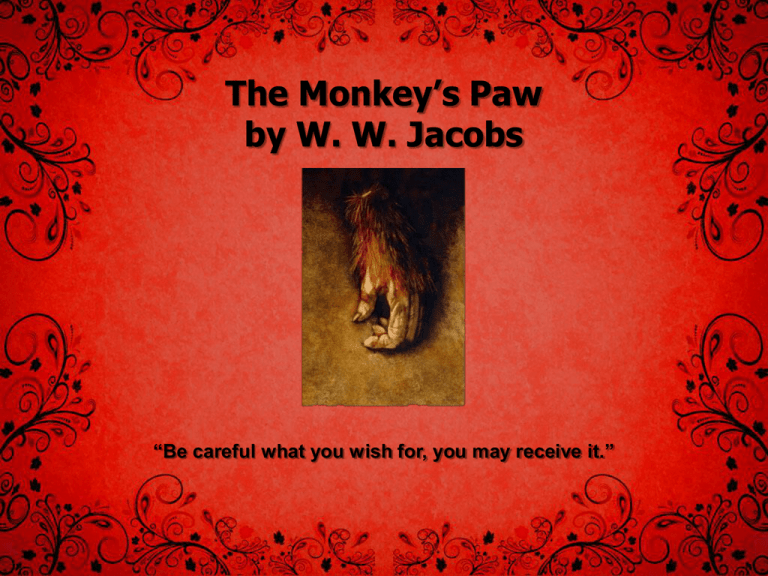
The Monkey’s Paw by W. W. Jacobs “Be careful what you wish for, you may receive it.” The Monkey’s Paw • Fairy Tale/Short Story Elements • Plot – Conflict – Exposition – Rising Action – Climax – Falling Action – Resolution The Monkey’s Paw • Conflict is essential to the plot to add tension, create depth for characters, and hold the reader’s attention • Plot Devices – Foreshadowing adds tension and suspense • Details that hint at upcoming events – Flashback provides background information • An interruption in the plot to describe a past event The Monkey’s Paw • Predictions – Your logical ideas about what you think will happen next in the story. • To make predictions, you must: – Pay attention to story details – Use your prior knowledge and personal experiences The Monkey’s Paw • Types of Personal Connections for Predictions: 1. Text to Text 2. Text to Media 3. Text to World 4. Text to Self The Monkey’s Paw • Text to Text –We use knowledge of other stories or novels with similar plots to help us predict the outcome of the story. The Monkey’s Paw • Text to Media –Use cultural knowledge and experiences with movies, television, music, video games, and other tangible media to help us connect to the story. The Monkey’s Paw • Text to World –Use knowledge of current events and news in the political, social, economic, and environmental world to help us identify key issues in the story. The Monkey’s Paw • Text to Self –Use knowledge of human nature and our personal life experiences (as well as those of our friends and family) to help us predict how characters will behave in the story. The Monkey’s Paw • Big Question: Is There a Difference Between Reality and Truth? • Think about a disagreement you have had with someone in the past where you had opposite opinions, but each of you believed your argument was the truth. • How can we verify the truth? The Monkey’s Paw • Think about your answers to the previous question as you read through the text. • Look for explanations the characters offer to explain the truth behind the events in “The Monkey’s Paw.” The Monkey’s Paw • Key Vocabulary (p.30) 1. 2. 3. 4. 5. 6. Grave Maligned Credulity Furtively Apathy Oppressive The Monkey’s Paw • Author: William Wymark Jacobs – Born September 8th, 1863 – Civil clerk in the Post Office Savings Bank of London in 1879 – Published first short story in 1885 – Majority of work was humorous in tone – “The Monkey’s Paw” (1902) is his most macabre and horrifying tale, and the most popular – Died September 1st, 1943 The Monkey’s Paw • Historical context – The English East India Company settled in India by 1611 and exported tea and textiles to England. The English quickly became fascinated with Indian culture. Elephants, tigers, and monkeys were great novelties. Rajahs had outrageous wealth and many wives, fakirs did astonishing feats such as lying on beds of nails, and many people wore exotic clothing and jewelry. There were ornate temples and artwork, new foods, and unfamiliar beliefs along with dreadful diseases, poisonous snakes, and mysterious cults. The Monkey’s Paw • Do you agree or disagree with the following statements and why? 1. One should be content with his or her life as it is. 2. People should not play games with fate. 3. You should never be afraid to be the master of your destiny. 4. Nothing is ever truly free. • ***Honors: Read “The Monkey’s Paw” (p.30-42) for homework. Write down important words/details that influence the mood of the story. The Monkey’s Paw
